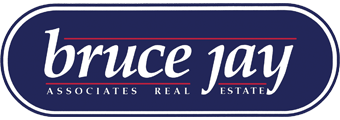The Pros and Cons of Condo Ownership
A condominium is one of a group of housing units where the homeowners own their individual unit space, and all the dwellings share ownership of common use areas.
The individual units normally share walls, but that isn’t a requirement. The main difference between condos and regular single homes is that there is no individual ownership of a plot of land. All the land in the condominium project is owned in common by all the homeowners.
The Benefits
There are many good reasons for owning a condominium. One of the most common is their continued popularity over time, which means that when you’re ready to retire or move, selling your condo will perhaps be easier than selling a single home.
Another benefit is the exterior and structural maintenance aspect of condo ownership.
As the owner, you need not deal with landscaping, mowing grass, exterior maintenance, or other repair issues related to the exterior of the units and the common areas. Retirees like this and vacation owners love it. Investors like this aspect as well, as they aren’t relying on tenants for exterior maintenance.
You may choose to buy a condo in a vacation area that you often visit. You could then take advantage of certain tax breaks for property ownership and you wouldn’t have to rent hotel rooms during your frequent visits.
Insurance and some utilities can be less expensive as well. The condo owner need only ensure the interior of their unit, not the exterior and structure overall.
The Drawbacks
All of these benefits come at a cost, and that’s the condominium association fee component. There will be a monthly or quarterly fee paid into the condo association to take care of all common costs, insurance, taxes, maintenance, repairs, some utilities, and so on.
The expenses and the dues that fund them can change, almost always increasing over time with inflation. You as an owner get a vote at association meetings, but it is just one vote. If the rules say a majority vote can raise monthly owner dues, then you’ll have to pay them or you’ll find a lien on your unit.
Periodically, you’ll also find rules that allow assessments for major repairs, such as a new roof or parking and sidewalk work in the project. There can also be assessments divided among owners to redo the pool or renovate the clubhouse. In buying a unit you will have agreed to abide by the rules and pay your share of valid assessments.
Rules and Limitations
There can be very strict condo association rules and restrictions. Drive into any condominium project and pay attention to the exterior of the units. They all look the same with respect to paint colors and exterior construction and design materials, and they always will.
You will find strict rules in the association covenants and restrictions that mandate no changing and little individuality when it comes to the exterior look of the units. You may discover that you can’t even hang a holiday wreath on your door, and you’ll likely turn up a rule about no wind chimes. It’s all about maintaining a consistent look for the entire project. You may also find limitations on what type of furniture or other items you can have on an outdoor patio.
There can even be rules about how much you can individualize the interior of your unit. These are justified by statements that the units must be in a condition to be easily sold in the marketplace. If you paint your interior bright orange and your cabinets bright green, this could lead to problems. If you’re a hermit, they may not know until you leave, but just be aware that the restrictions apply to both exteriors and interiors in many condominium projects.
Overall, choosing a condo versus single family home ownership is a personal decision, with very individual reasons for each person or family.
Call us if you are seeking a Condominium Purchase!
